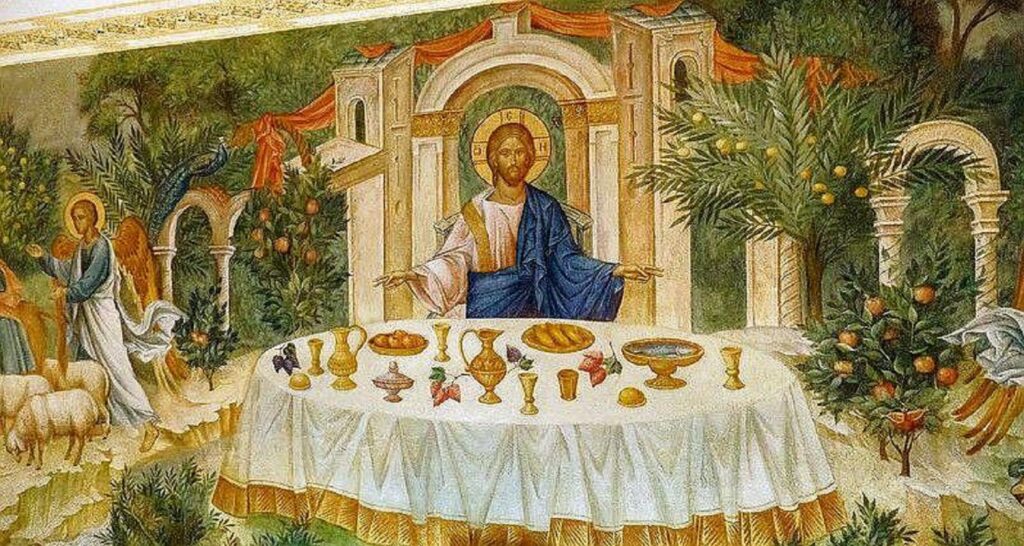And Jesus answering, spoke again in parables to them, saying:
2 The kingdom of heaven is likened to a king, who made a marriage for his son.
3 And he sent his servants, to call them that were invited to the marriage; and they would not come.
4 Again he sent other servants, saying: Tell them that were invited, Behold, I have prepared my dinner; my calves and fatlings are killed, and all things are ready: come ye to the marriage.
5 But they neglected, and went their own ways, one to his farm, and another to his merchandise.
6 And the rest laid hands on his servants, and having treated them contumeliously, put them to death.
7 But when the king had heard of it, he was angry, and sending his armies, he destroyed those murderers, and burnt their city.
8 Then he saith to his servants: The marriage indeed is ready; but they that were invited were not worthy.
9 Go ye therefore into the highways; and as many as you shall find, call to the marriage.
10 And his servants going forth into the ways, gathered together all that they found, both bad and good: and the marriage was filled with guests.
11 And the king went in to see the guests: and he saw there a man who had not on a wedding garment.
12 And he saith to him: Friend, how camest thou in hither not having a wedding garment? But he was silent.
13 Then the king said to the waiters: Bind his hands and feet, and cast him into the exterior darkness: there shall be weeping and gnashing of teeth.
14 For many are called, but few are chosen.
This was the reading at last Sunday mass.
Whatever else it might reveal, it puts to bed the notion of many, including Bishop Barron, that there might be nobody in hell, that we can at least hope that everyone gets to heaven. Rather, “few are chosen.”
The first and most obvious puzzle: why would all the respectable people, the upstanding citizens, not want to come to the king’s feast? Why would they treat the servants who delivered the invitation badly, even put them to death?
This is the anomalous detail always needed in a parable or allegory to tell us we are not talking literally. For a literal marriage feast, this would make no sense. But if this refers to the persecution of the prophets, it fits with the marriage feast really being the kingdom of God. The prophets call us to God’s kingdom, and they are inevitably persecuted for it. Just like Dostoyevsky’s Grand Inquisitor, those in authority in this world are fundamentally opposed to anyone speaking truth directly, because it upsets the status quo, or risks upsetting the status quo, and so threatens their status. They are the status quo.
Of course, their attitude is illogical. They are refusing a feast, and ensuring their destruction. But evil is always illogical.
The second puzzle: according to the parable, “both bad and good” enter heaven. Can that be right?
But that is why we have part two of the parable, with the man not wearing a wedding garment being cast out. There is a second weeding out. Only at this point are people “chosen,” as opposed to choosing themselves whether to come. And not just this one man is rejected; “few are chosen.”
The first triage is genuinely seeking truth—these are the people who are summoned from the highways, and who answer the call. They are the honest seekers; those who refuse the call are those who do not want to hear the truth. But once hearing the truth, once in God’s presence, the obligation to do God’s will is apparent. This is the second triage: are you prepared to dress, and act, accordingly? And so at this point one can still be rejected, and many are.
Why a marriage feast? Who is getting married?
You are.
Each individual soul is getting married to God. It is a two-step process, the engagement and then the full commitment.













No comments:
Post a Comment